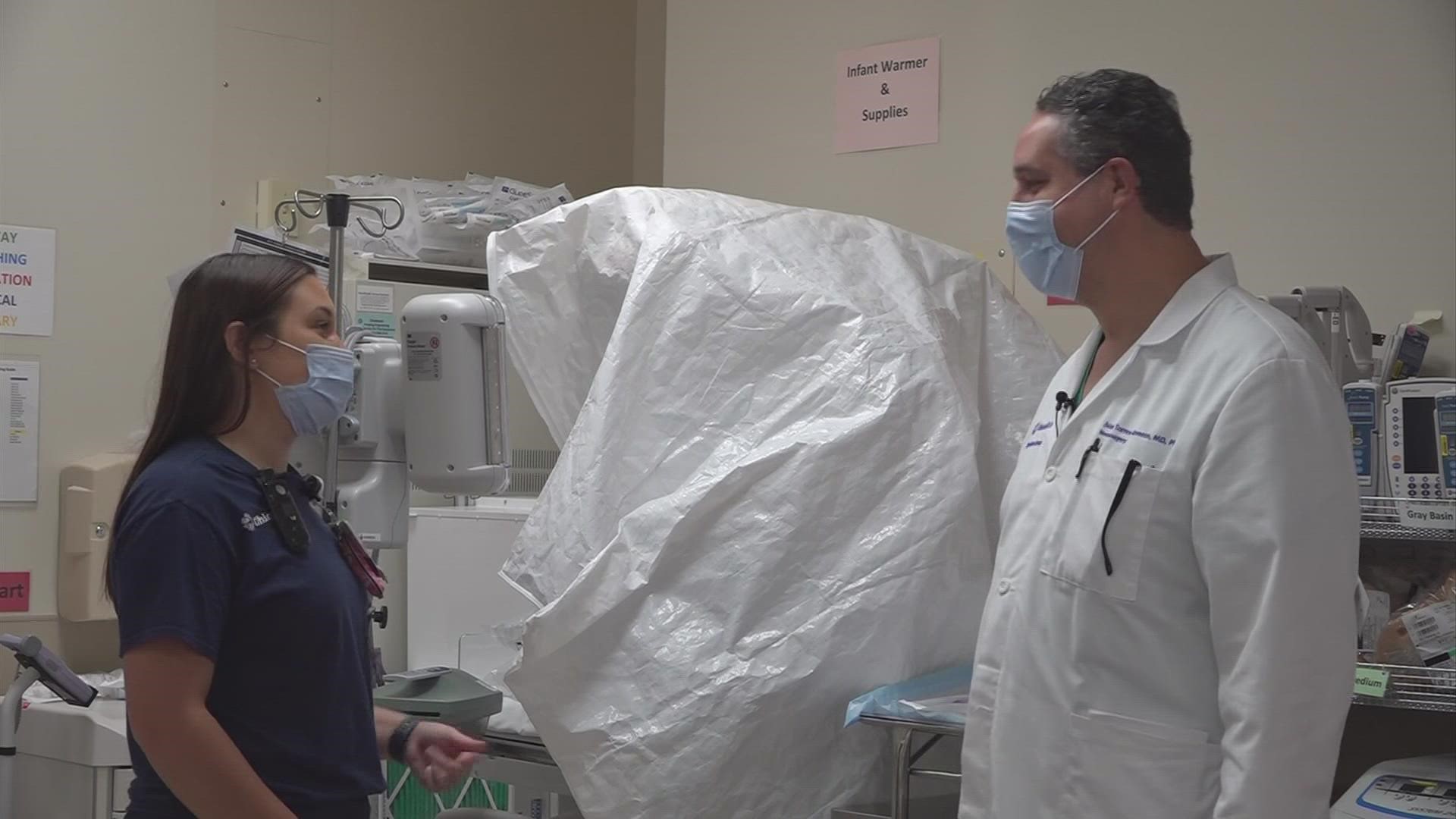COLUMBUS, Ohio — Like a lot of physicians, OhioHealth neurosurgeon Dr. Juan Torres-Reveron has put a lot of time into helping others.
As a young man, he moved from his small hometown in Puerto Rico to do research at the University of Minnesota, then to the University of Alabama.
After spending eight years in Birmingham, he made his way to Baylor College of Medicine in Texas before coming to Ohio.
A lot of that time was spent on his original plan, to do research.
“Medicine was not initially my first choice. I’ll be honest with you," Torres-Reveron said.
"My dad is actually an electrical engineer. So I’ve always had that love of mathematics and engineering, and for the longest time, I actually thought I was going into engineering.”
Somehow along the way in his studies, he shifted to natural science and biology research.
That work led him to his calling in neurosurgery, working to help people with neurological issues like epilepsy and Parkinson's disease.
“It can be very life changing," Torres-Reveron said of his work, "these are people who of course have had a horrific chronic disease for a long period of time. You know, they can’t drive, they cannot do many things, and all of the sudden, surgery can change that. Completely.”
In being a part of that change, he sees beauty in his work.
“To see the patient all of the sudden realize, ‘wait, my life is not stopped. I get to live my life from now on,’ that’s the beautiful part of that profession.”
It's that beauty in medicine that he wants his peers in the Hispanic and Latinx community to experience too.
“Healthcare is not something that they think about. It’s just something that you do when you have nothing else," he said. "Unfortunately, they tend to take longer, I will say, than the white population, because they may not have that access.”
That lack of access, can oftentimes come from socioeconomic disparities and status.
“There's the jobs are different," he said, "they may not have enough of an income. Many of them don’t have insurance.”
Those cultural and socioeconomic factors can be tough to break through, but Torres-Reveron said preventative care is not only helpful to one's health, but to one's wallet, too.
"I know that it sounds expensive, but believe it or not, it’s probably the cheapest way to take care of your health.”
More importantly, he knows a big part of protecting a culture's past and heritage is making sure people passing those things on have a healthy future.
“I want to make sure that we are not remembered, particularly Hispanics, in the United States as a population that waits until the end to take care of themselves," he said.
"We all have a voice. A diverse voice, and that we’re all included here. Right? Everybody here is a human. We all have value. You are living a legacy into this country. How about we live that legacy for a long period of time?"

